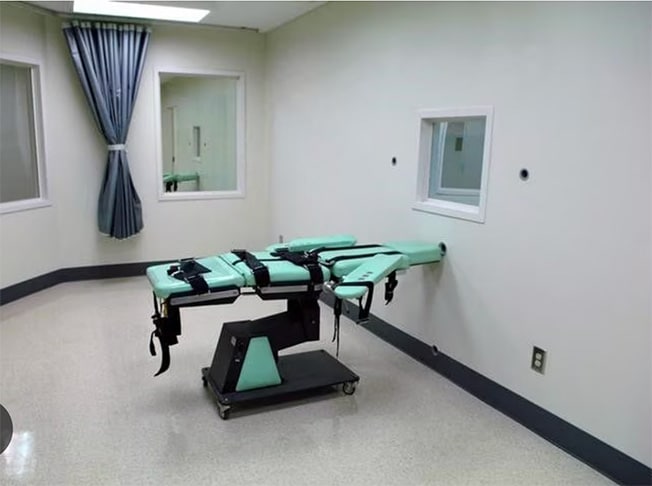The U.S. Supreme Court on Monday allowed a challenge by an Alabama death row inmate who sued months before surviving a botched execution claiming that the state’s troubled lethal injection process would violate constitutional protections against cruel and unusual punishment.
In an unusual case that has returned to the justices because the execution of convicted murderer Kenneth Smith failed, they turned away an appeal by Alabama officials of a lower court’s decision to revive his lawsuit seeking to block the state from putting him to death through lethal injection. Smith instead is seeking to be executed using another method.
Conservative Justices Clarence Thomas and Samuel Alito dissented from the decision to allow Smith’s challenge to proceed.
Alabama Attorney General Steve Marshall, a Republican, is disappointed with the court’s action and his office is reviewing it to determine its next steps, a spokesperson for Marshall said. Smith’s attorney Robert Grass declined to comment.
A majority of the justices in November cleared the way for the execution of Smith, sentenced to death for his role in a 1988 murder-for-hire plot.
Smith, 57, filed his suit in federal court last August – months before his botched execution. The lawsuit alleged that the state’s lethal injection protocol would subject him to cruel and unusual punishment in violation of the U.S. Constitution’s Eighth Amendment based on problems Alabama officials encountered in putting prior condemned inmates to death, including accessing veins to insert intravenous lines.
The method in Alabama posed an “intolerable risk of torture, cruelty or substantial pain,” Smith’s lawsuit stated.
At issue in the case is whether, under Supreme Court precedent, a death row inmate may argue that a method of execution known as nitrogen hypoxia that has been approved by Alabama’s legislature but not yet used by its Department of Corrections is a legally available alternative.
Smith is seeking to require Alabama to execute him by inhaling nitrogen, a gas that would deprive his body of oxygen. Smith has said the protocol would substantially reduce the risk of aborted executions or pain, such as a sensation of drowning or choking.
A judge dismissed Smith’s lawsuit, but on Nov. 17, the day of his scheduled execution, the Atlanta-based 11th U.S. Circuit Court of Appeals revived his case, letting Smith file an amended complaint.
The 11th Circuit also in a separate decision stayed his execution, but after the state appealed to the Supreme Court, the justices allowed it to proceed. The nine-member Supreme Court’s three liberal justices dissented from that decision.
State officials that night repeatedly tried but failed to place the necessary intravenous lines or a central line in his collarbone area before calling off the execution after 11 p.m.
“Mr. Smith’s worst fears began to play out much as his federal lawsuit had alleged they would,” his lawyers said in court papers, adding that the experience “subjected him to hours of torture while trying to execute him and exposed him to the severe mental anguish of a mock execution.”
Alabama Governor Kay Ivey, a Republican, announced a review of the state’s execution procedures after Smith’s case, which was the third time that Alabama had called off an execution since 2018 after problems placing intravenous lines. Officials completed their review in February.
Smith was convicted in 1989 of killing Elizabeth Dorlene Sennett the prior year after he and an accomplice were hired by her husband Charles Sennett, a Christian minister who had taken out a large insurance policy on his wife, according to prosecutors. She was stabbed repeatedly and beaten with a blunt object.
Charles Sennett later committed suicide. Smith’s accomplice also was convicted and sentenced to death, with the execution carried out in 2010.
Smith’s case is not a challenge to the death penalty itself. Some liberal justices have raised questions about the death penalty in the United States but the court, with its 6-3 conservative majority, appears unlikely to reverse course on its use.







Click here to change your cookie preferences